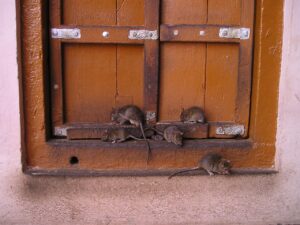
The Department of Health (DoH) reported on June 27 a rise in the weekly case count of leptospirosis in the Philippines. Except for the Zamboanga Peninsula and Northern Mindanao, all regions had increases in leptospirosis cases over the previous month.
Eighty-three cases were observed from June 2 to 15, up from the 60 recorded last May 19 to June 1.
Eighty-four deaths have already been recorded due to the disease as of June 15.

“Umiwas lumusong o maglaro sa baha para wag ma-Lepto. Kung hindi maiwasan ang paglusong, gumamit ng bota, at hugasan agad ang katawan ng malinis na tubig at sabon pagkatapos. Kumonsulta sa doktor, mahirap na (Avoid wading in floods to prevent leptospirosis. Those who do have to wade in floods should wear boots when doing so, and then wash their bodies with soap and water afterwards. Consult a doctor if you’ve been exposed to flood waters),” health secretary Teodoro J. Herbosa said in a June 27 press statement.

Leptospirosis is a bacterial infection transmitted by animals, including rodents and other vermin.
This zoonotic disease affects both animals and humans and is caused by the Leptospira bacterium found in contaminated water or soil. Leptospira bacteria can enter the body through breaks in the skin, or through the eyes, nose, and mouth. Infected animal urine can mix with flood water, which then comes into contact with people wading through or playing in it.
It takes 2 to 30 days to get sick after contact with Leptospira bacterium.
The symptoms of leptospirosis include:
- fever
- vomiting
- nausea
- muscle pain
- headache
Severe cases may develop jaundice (yellowish body discoloration), dark-colored urine, light-colored stool, low urine output, and severe headaches.
When left untreated, leptospirosis in people can lead to kidney damage, meningitis (inflammation of the membrane around the brain and spinal cord), liver failure, difficulty in breathing, and death.
“We also urge our local governments to declog flood drains and implement rodent control so that there will be less chances for transmission to humans,” Mr. Herbosa said.



